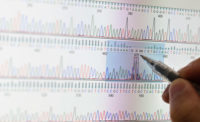The first compliance date for the Food and Drug Administration’s (FDA) Foreign Supplier Verification Programs (FSVP) Final Rule was May 30. Published in November 2015, the FSVP Rule requires importers to verify the food they import into the U.S. meets the same public health standard as food produced domestically, is not adulterated and is not misbranded with respect to allergen labeling. Compliance dates are staggered starting May 30 through July 2020.
While meat, poultry and egg products are exempt from the FSVP rule if they are amenable to inspection by the Food Safety and Inspection Service (FSIS), many in the meat and poultry industry are just learning the FSVP rule may be applicable to the importation of live animals for human consumption. Specifically, the FSVP Rule defines “food” as “the meaning given in section 201(f) of the Federal Food, Drug and Cosmetic Act,” which includes live animals intended for human consumption. As noted in the preamble to the FSVP Rule “[l]ive animals raised for food, even though not in their final, edible form, are considered to be food under the FD&C Act…” (Federal Register. 80(228): 74526 -7).
Because live animals would be considered “food” under the FD&C Act, a literal reading of the FSVP Rule would require individuals identified as “FSVP importers” of live animals intended for human consumption to be compliant with the FSVP rule. As such, the FSVP importer would be required to develop a written FSVP program for each foreign supplier and the type of live animal raised by the foreign supplier.
The FDA FSVP plan is separate and unique from a FSIS HACCP plan. Assuming the FSVP importer meets the standard requirements of the FSVP rule, the plan would be required to have the following basic components and all related supporting documentation
- Conduct a hazard analysis of the food, including hazard identification and hazard risk evaluation. Note: A FSVP importer will need to conduct a hazard analysis for the “food,” or in this case, the type of live animal being imported (or review a hazard analysis done for that “food”). Likely the FSVP importer would determine, in accordance with § 1.507 of the FSVP rule, that the live animals could not be consumed without appropriate controls (further down the supply chain) of hazards identified, so the FSVP importer would not be required to conduct an evaluation under § 1.505 (FSVP importer’s evaluation for foreign supplier approval and risk posed by the food) or verification activities under § 1.506 (FSVP Importer’s verification activities). This determination would need to be clearly documented in the FSVP plan. FSVP importers also must document how foreign suppliers are approved and the FSVP importer does a written reevaluation of a supplier’s performance when aware of new information affecting the evaluation or at least every three years.
- Conduct an evaluation of the foreign supplier’s food safety performance and risk posed by the food.
- Approve the foreign supplier (based on above evaluations).
- Establish written procedures to ensure imported live animals are imported only from approved foreign suppliers (with limited exceptions).
- Determine and apply appropriate verification activities and assess results. Note: Likely not applicable because of what was determined in No. 1 and § 1.507.
- Implement corrective action(s), if needed. Note: Likely not applicable because of what was determined in No. 1 and § 1.507, unless an event occurs and the FSVP importer needs to address an issue related to the animal foreign suppler or stop using the approved foreign supplier.
- Reevaluate foreign supplier (at least every three years or when an issue requires reevaluation).
- Identify the FSVP importer at entry.
- Keep required records and documentation.
We should note that industry members have raised the question with FDA and FSIS on whether live animals intended for slaughter at FSIS inspected facilities should be subject to the FSVP Rule. Unless the agencies clarify that such animals are not subject to the rule, FSVP importers of live animals intended for human consumption would need to be compliant.
FDA has developed guidance for industry on some specific issues and indicated additional guidance documents are being developed. NP





Report Abusive Comment